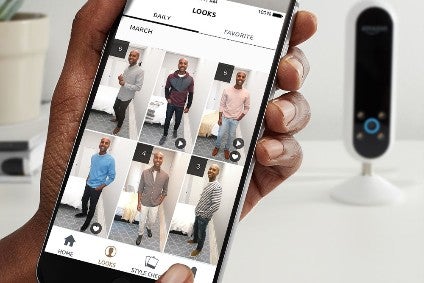
Online retail behemoth Amazon is becoming a “frenemy” to apparel brands, a new report suggests, with the group’s private labels overshadowing other brands.
Research from L2 on Amazon’s sales for the third quarter, when revenue grew 34% to US$43.7bn, found the e-tailer’s increasing preference for its growing line of private-label brands is coming at the expense of brand partners, often selling goods at a higher price point.

Discover B2B Marketing That Performs
Combine business intelligence and editorial excellence to reach engaged professionals across 36 leading media platforms.
Brands such as Nike and Adidas have started to work with Amazon instead of trying to compete with it. Earlier this year the company advertised for brand managers to “build authentic activewear private label brands,” and it has launched some 14 private brands between 2016 and 2017, including Mae intimate apparel, Ella Moon bohemian-style casual clothes, and Paris Sunday womenswear. Also in the line-up are Amazon Essentials, its men’s and women’s basic apparel, and Buttoned Down men’s dress shirts.
Amazon private label push to shake up sportswear?
“With its expanding private label fashion lines, Amazon is becoming a frenemy to apparel brands,” the report notes. “Sellers should expect fewer opportunities to leverage the e-tailer during periods of peak online shopping as Amazon gives preferential treatment to its own brands.”
During Amazon’s recent Prime Day event, the company drove enough awareness for its private label fashion brands that Amazon Essentials has been able to maintain momentum and surpass legacy brand Dockers in the researcher’s ‘Amazon Performance Rank.’
The researchers add: “Brand equity is not enough to drive apparel sales for basics, as Amazon’s price-conscious shoppers are deal-driven. Legacy brands need to do a better job of identifying their Amazon-specific competition irrespective of their traditional competitors in other distribution channels.”

US Tariffs are shifting - will you react or anticipate?
Don’t let policy changes catch you off guard. Stay proactive with real-time data and expert analysis.
By GlobalDataIncreasing competition from long-tail and private label brands is beginning to materialise for Dockers and Adidas, both of which suffered sharp declines in their Amazon Performance Rank in the third quarter, dropping 4.2% and 3.8% respectively.
L2’s performance metric uses a brand’s position on Amazon’s bestseller list as an indicator of unit sales.
As demonstrated in the activewear category, smaller brands can punch above their weight on Amazon. 90 Degree by Reflex consistently outperforms legacy brands like Nike, Adidas and Under Armour. Outside of activewear, brands such as Wrangler and Gildan are amongst the biggest winners.
The report does point out, however, that opportunities exist for speciality brands to profit on Amazon during seasonal trends. It suggests best-in-class sales and marketing teams should leverage Amazon’s keyword bidding platform AMS to target seasonal search items.
Some of the new leading brands on Amazon in the third quarter were independent long-tail brands such as Dearcase and Zanzea, which sell dresses and women’s tops. Crocs, on the other hand, saw its performance drop by 0.14%.





